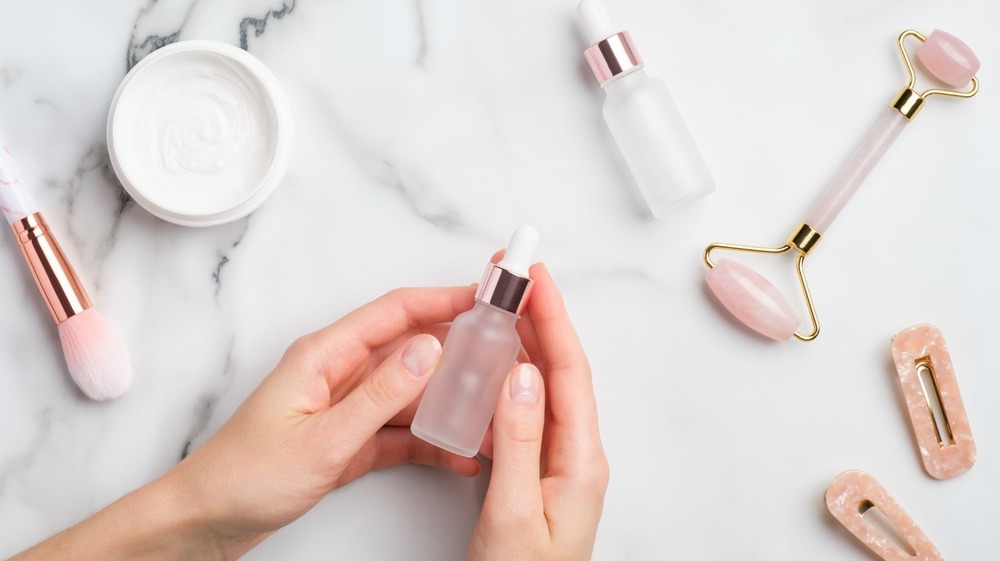Why You Want To Add Polyglutamic Acid To Your Skincare Routine
Some days, it feels like our skin is fighting a losing battle against time, the environment, and even the food we eat. Yes, even simple pleasures like sugar and carbohydrates can contribute to wrinkles, not to mention the dehydrating effects of winter weather. If you're worried about keeping your complexion looking fresh and hydrated, there's a new buzzworthy product you may want to consider adding to your skincare routine. It's called polyglutamic acid and, according to Byrdie, it packs a much bigger punch than hyaluronic acid, the current reigning queen of the hydration world.
You've likely heard of hyaluronic acid's ability to hydrate skin and improve elasticity, but it also occurs naturally in our bodies, according to Byrdie. When our natural hyaluronic acid (or, HA for short) is in good supply, our skin appears moisturized, hydrated, and we basically feel like a straight-up goddess. But as we age, an enzyme called hyaluronidase breaks down our natural HA. That's where polyglutamic acid steps in.
How does polyglutamic acid help your skin?
Lest you think you have to suffer at the mercy of hyaluronidase and live with dry, dull skin ridden with wrinkles and visible pores forever, fear not. Beauty guru Charlotte Tilbury told Byrdie, "Products that contain PGA [polyglutamic acid] help to inhibit the action of hyaluronidase, resulting in more HA in the skin, and giving an overall moisturized, rejuvenated, and hydrated appearance to the skin."
So, where does PGA come from? It's actually "produced by bacterial fermentation," scientist Michelle Wong explained, noting that it's found in the Japanese breakfast food, Nattō, which is made from fermented soybeans. But essentially, polyglutamic acid is just a bunch of glutamic acid (a.k.a. amino acid) molecules "linked together." Aside from potentially slowing down skin's aging process, PGA's other superpower is that it's a humectant, which means it can draw moisture from the air into the outer layer of your skin, according to Healthline. Polyglutamic acid can reportedly retain up to ten times more water than hyaluronic acid and may even help your skin produce more of its own natural HA.
If your skin is thirsting for more moisture and you want to give polyglutamic acid a try, you'll most often find it in serum form. Byrdie says it's suitable for all skin types and can be used in combination with other products, even HA and vitamin C. Just be sure to order your skincare routine properly and apply your serums after masks and before eye creams and spot treatments.

